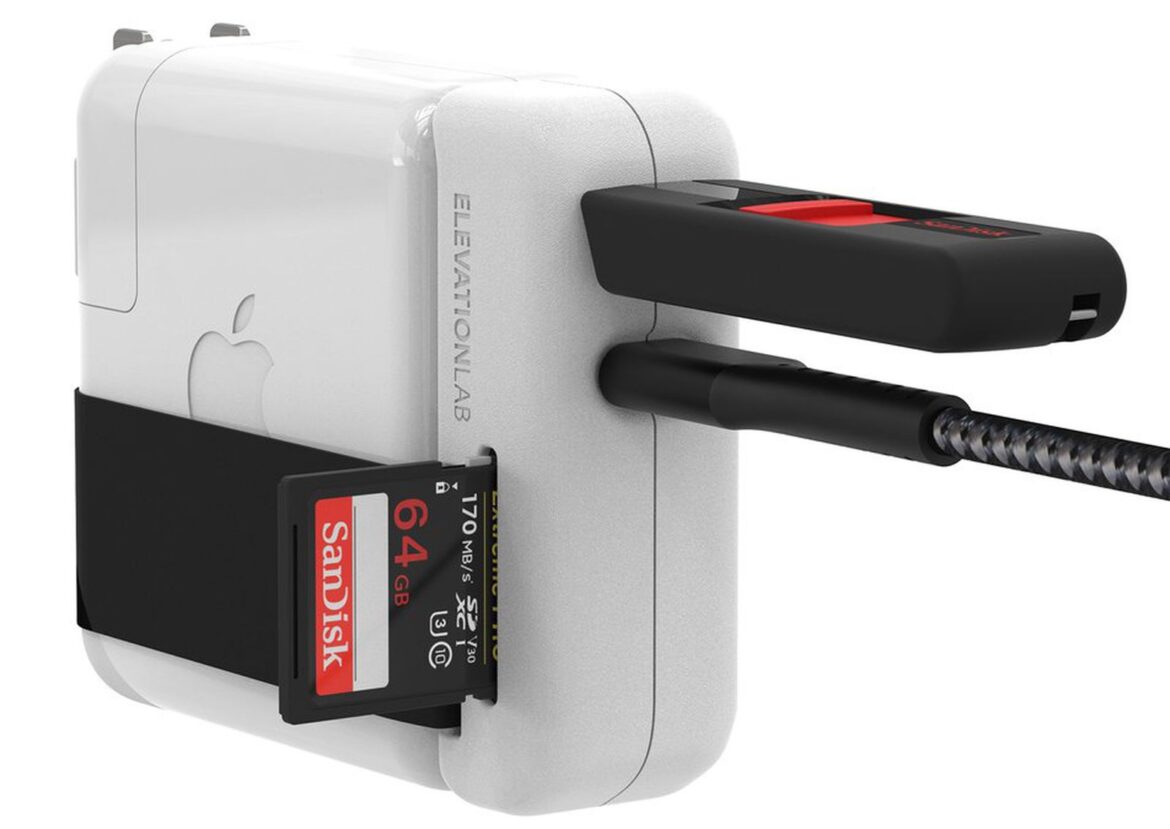ElevationLab has a range of accessories for Apple products and in June, introduced a new accessory designed to turn a Mac’s power adapter into a hub.
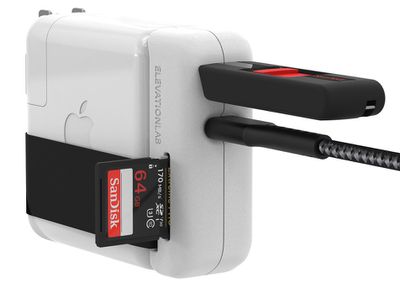
There are many USB-C hubs available on the market, but the ElevationHub is unique because it works directly with a power adapter rather than plugging into a Mac. A USB-C accessory connects to the USB-C port on one of Apple’s official chargers for the MacBook Pro, providing additional ports.
Design-wise, it’s made from the same white plastic as Apple’s power adapters for a sleek, clean look, and it’s compatible with the 61W, 87W, and 96W power adapters Apple offers. For those with a MacBook Air it is unfortunately not recommended with a 30W power adapter.
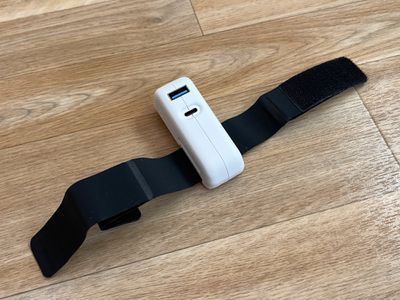

Apple fits best with the 61W power adapter supplied with the 13-inch MacBook Pro, but it also works well with the larger power adapter supplied with the 15- and 16-inch MacBook Pro models. While these chargers are able to fit, the ElevationHub is limited to passthrough charging up to 61W, so it may not be able to provide enough power to charge larger MacBook Pro models when they’re under a heavy load.
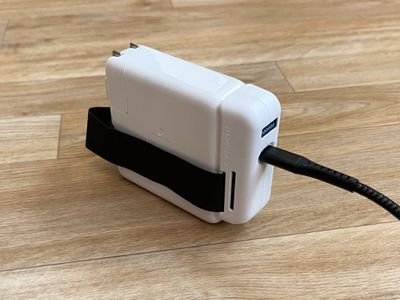

For that reason, it’s an ideal product for the 13-inch MacBook Pro models, although if you don’t often do system-intensive work on a larger MacBook Pro, it should work just as well. If used with larger MacBook Pro models, be aware that they will charge slower than a standard USB-C cable.
In addition to 61W passthrough charging, the ElevationHub has a USB-A 3.0 port and an SD card slot, useful for connecting USB-A accessories or getting photos from an SD card pulled from a camera or drone.
You can purchase the ElevationHub with an optional 6-foot USB-C cable that supports transfer speeds of up to 5Gb/s, or use it with the standard USB-C cable that Apple provides. It comes with a built-in cable wrap for cable management, and I recommend the add-on cable even though it’s $10 more because it’s high quality and features a nice braid design that can hold up to heavy use.
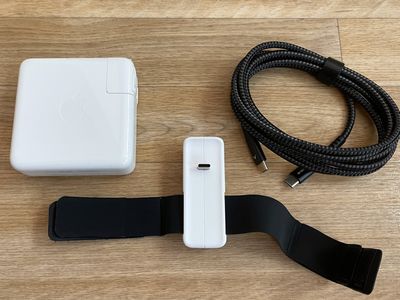

Depending on your specific desk setup, ElevationHub may be of limited use. I charge my MacBook Pro using a power adapter that’s plugged into the back of my desk and a cable management box, which means that the USB-A port and SD card slot aren’t easy to get to. I don’t think this is a convenient solution in this situation, but for those who have a setup where charging is done in a way that keeps the power adapter on the desk, it’s useful.
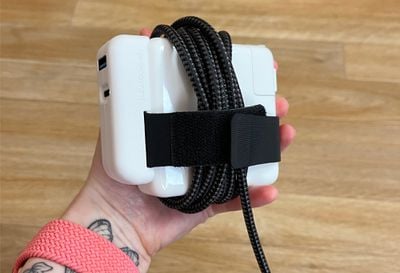

There are more possibilities if you plan to use those ports to plug something in and forget about it. You can plug an SSD or hard drive into the USB-A port and move it with the power adapter under a desk for a convenient time machine or add-on storage solution, and the same goes for the SD card slot. All ports worked as expected during my testing.
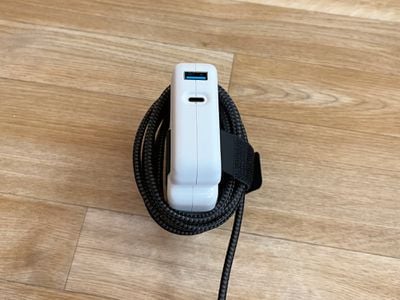

ElevationHub is also useful for travel. Airports, libraries, and schools often have desktop outlets, and these are situations where ElevationHub comes in handy. It adds ports you might need to charge an iPhone or connect an SSD, plus the cable tangle feature is useful when you want to toss your power adapter in your bag or backpack.
bottom line
ElevationHub is a bit of a niche product. It works well with the 13-inch MacBook Pro, but isn’t compatible with the 13-inch MacBook Air, and isn’t ideal for larger MacBook Pro models in all situations that offer charging limitations.
That said, there are some useful perks depending on your desk setup or how you plan to use the ElevationHub, so it’s worth checking out for those looking for something to travel with or a way to add a MacBook accessory or two. permanently tucked away.
How to buy
The ElevationHub costs $39.95 for the hub alone, or $49.95 for the hub plus a 6-foot USB-C cable. It can be purchased from the ElevationLab website.
Note: ElevationLab provided MacRumors with an ElevationHub set for the purpose of this review. No other compensation was received.
